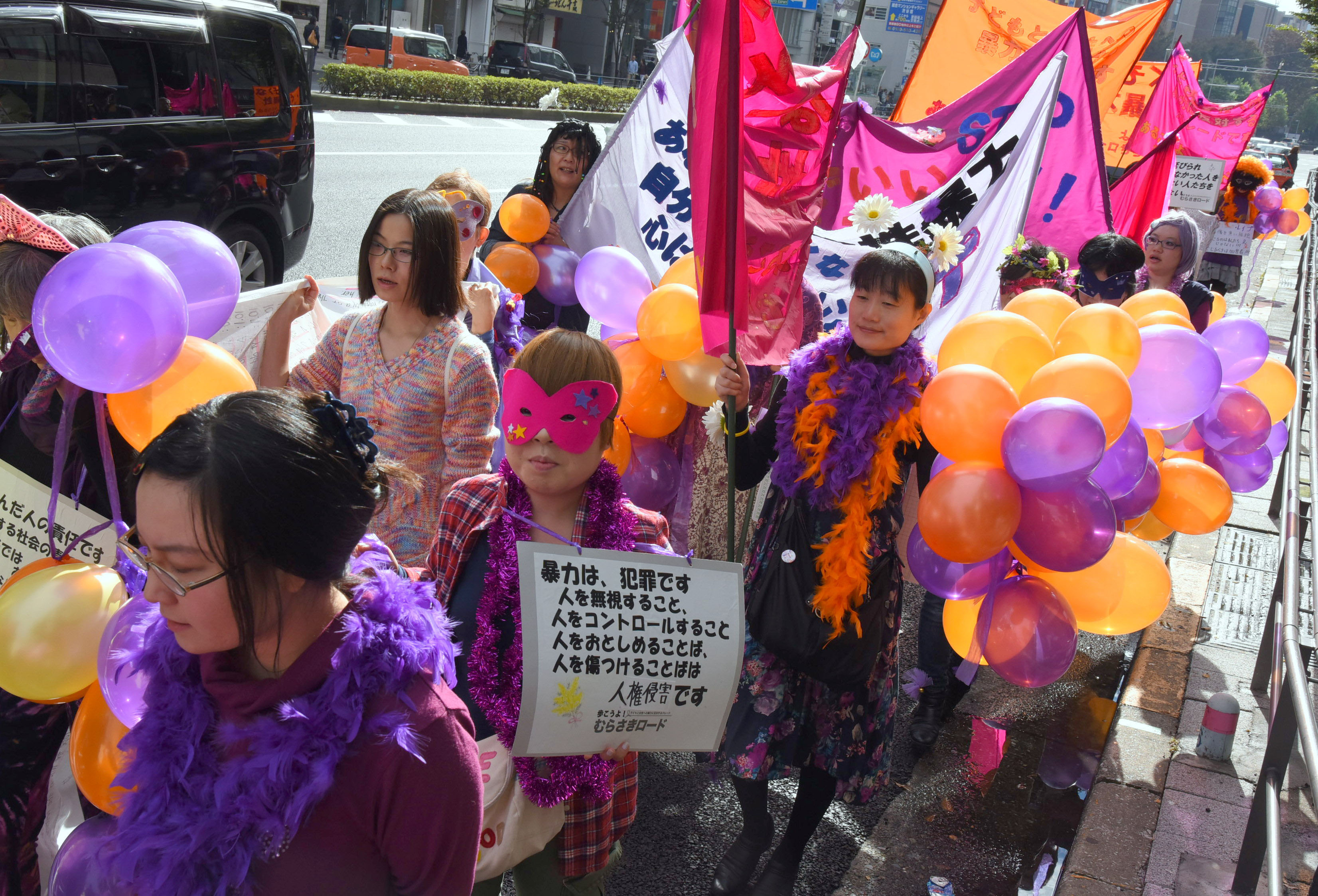In a rare event designed to raise their profile, about 50 survivors of domestic abuse and their supporters held a parade in central Tokyo Sunday to demonstrate their vows not to succumb to violence.
The participants, mostly women, marched along the wide avenue known as Omotesando Dori disguised by an array of costumes to protect their privacy. Their outfits featured the color purple, which is being used to promote awareness of domestic violence.
The rally was peaceful, with marchers happily waving at passers-by while chanting such slogans as "We are free!" "Violence and surveillance are not love" and "Let us be who we are!"


















With your current subscription plan you can comment on stories. However, before writing your first comment, please create a display name in the Profile section of your subscriber account page.